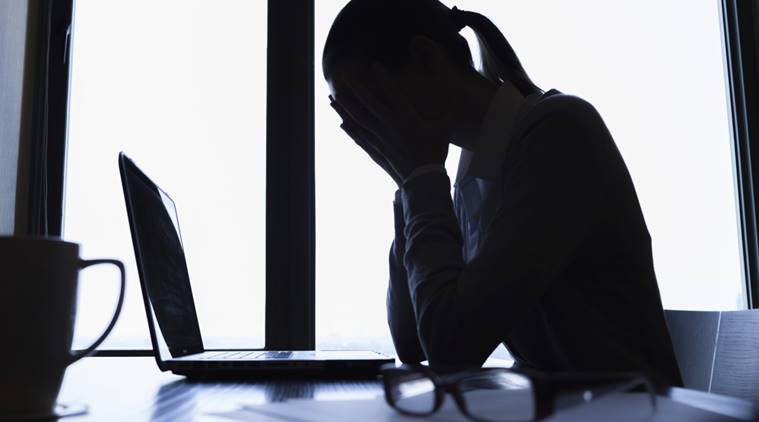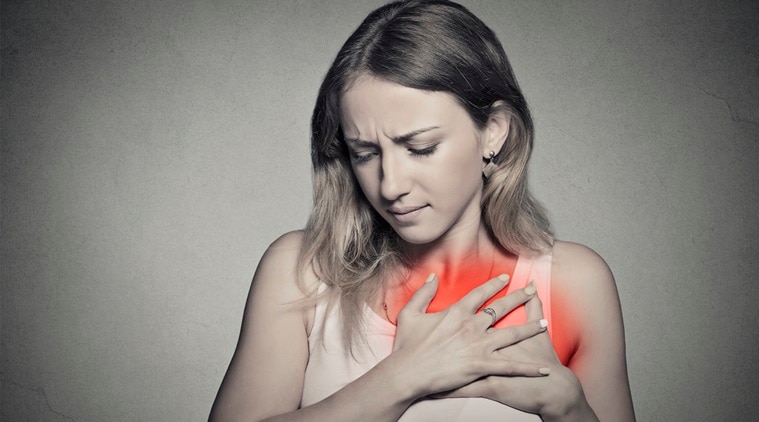
Have you ever experienced sudden unexplained bouts of anxiety coupled with heart palpitations and other physical symptoms of stress? What you experienced was a panic attack, a condition which has become increasingly common in today’s time due to the stressful work schedules and hectic lives most people live.
Panic attack can be described as a sudden onset of intense fear or discomfort that triggers severe physical symptoms. They may occur without warning even when there is no real danger or apparent cause. Panic attack symptoms may vary from individual to individual, but the symptoms peak within minutes.
“According to a report by the World Health Organisation, an estimated 56 million people suffer from depression and 38 million from anxiety disorders. Most people experience a panic attack only once or twice in a lifetime during a particularly stressful spell. But if the attacks continue, they may be diagnosed with a condition known as panic disorder,” says Dr Santosh Datar, medical director and consultant doctor, Ziqitza Healthcare Ltd.
ALSO READ | Health tips: Simple ways to manage migraine at work
According to studies, millennials (between the ages of 18 to 33) and Gen Xers (between the ages of 34 to 47) are reported to have the highest levels of stress. These age groups combined make up the working populace of the country, and a large number of them are susceptible to a panic attack. The female to male ratio for anxiety disorders is 3:2.
Some of the most common symptoms are:

*Sense of impending doom or danger
*Shortness of breath
*Feeling of choking or suffocation
*Paraesthesia (numbness or tingling sensation)
*Rapid, pounding heart rate
*Sweating
*Feeling of loss of control
*Chest pain
*Trembling or shaking
*Chills
*Nausea
*Dizziness, light-headedness
*Hot flushes
*A churning stomach
*Derealisation (feelings of unreality) or depersonalisation (being detached from oneself)
The exact cause for its occurrence is still unknown, but factors such as family history, major life stress, traumatic event (current or past), smoking or excessive caffeine intake, among others may play a role.

Though panic attacks are frightening, they are not always dangerous. However, they should not be taken lightly, and after one experiences such an attack, it is advised to seek medical help immediately. Some symptoms can be indicators of underlying diseases and patient needs to be examined thoroughly.
Repeated panic attacks can lead to complications such as feeling guilty, development of phobias, avoidance of social events, depression and anxiety disorders, problems at workplace, alcohol or substance abuse. There are certain methods that help you get through a panic attack.
Some ways to get through a panic attack, especially at office are:
*Do not fight the attack and stay wherever you are
*Tell yourself the attack is not dangerous and will pass in few minutes
*Take deep and slow breaths to avoid hyperventilation. Take a deep breath through your nose, allowing the air to slowly fill your chest and belly, and then breathe out through the mouth
*Close your eyes to block external stimuli that may be triggering the attack
*Use muscle relaxation techniques to calm yourself
*Try to focus on positive and relaxing images
*Practice grounding exercises that will help you reverse the feeling of detachment
*Keep objects at hand that can act as a physical representation of safety and love

Some measures that can help prevent or minimise the occurrence of panic attacks are:
Medical Consultation
Consult your doctor who will make a note of the history of your symptoms, conduct physical examination and ask for some tests to rule out any other associated disease. The doctor may also advise a form of psychotherapy known as Cognitive Behaviour Therapy, and if necessary, prescribe some medications.
Identify triggers
Panic attacks may be set-off by external or internal stimuli or triggers. Try to identify these triggers which will help you prepare to cope with the attacks in a better way.
Exercise regularly
Exercise releases endorphins in the body which help in elevating the mood of a person besides having several other health benefits. However, consult your doctor before starting any exercise regime.
Avoid substance abuse

Avoid caffeine, alcohol, tobacco use, smoking or other drugs.
Relaxation techniques
Practice relaxation techniques and yoga exercises.
Adequate sleep
Adequate sleep is extremely important not only to manage panic attacks but also for one’s overall physical and mental health.
One can keep the above points in mind during a panic attack or the onset of one to ensure quick recovery. It is also advised to help a panic attack victim near you by reminding them to practice these measures. Keep emergency medical service numbers handy in case a need arises.